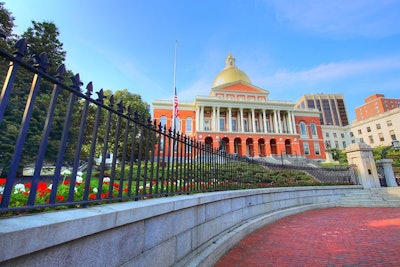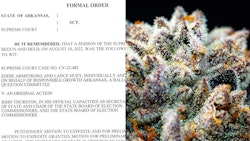
Massachusetts Gov. Charlie Baker signed legislation Aug. 11 aimed at increasing diversity in the state’s cannabis industry.
The Senate unanimously approved its version of the bill in April, and the House passed its version in a 153-2 vote in May. Both chambers then passed compromise legislation, S. 3096, last month, sending it to the governor’s desk.
The sprawling cannabis regulatory reform bill aims to promote greater diversity in the market, increase oversight on host community agreements and establish a framework for municipalities to allow cannabis consumption lounges in their jurisdictions.
Baker approved almost all the legislation’s provisions Thursday, according to The Berkshire Eagle, but struck down a single section that would have required state agencies to examine ways to allow K-12 students to possess and use medical cannabis on school grounds.
“By no means am I saying that this single piece of legislation will solve every issue that’s facing the cannabis industry, but it is a massive step,” Cannabis Control Commissioner Ava Callender Concepcion said during the commission’s Aug. 11 meeting, a few hours before Baker signed the bill into law. “This is monumental.”
The legislation will establish a Social Equity Trust Fund, seeded with 15% of the money in Massachusetts’ Marijuana Regulation Fund, which is funded by revenue from the state’s cannabis excise tax, application and licensing fees, and industry penalties, The Berkshire Eagle reported.
The Social Equity Trust Fund will provide grants and loans to help those disproportionately impacted by the war on drugs participate in Massachusetts’ cannabis industry.
S. 3096 will also provide the Cannabis Control Commission (CCC) with the authority to review and approve host community agreements—the contracts that cannabis operators are required to sign with the municipalities they operate in—before the businesses obtain their final licenses.
In addition, the legislation mandates that community host agreements can only be in place for the first eight years that a cannabis operation is in business, as well as clarifies that a “community impact fee” in a host community agreement cannot exceed 3% of gross sales, The Berkshire Eagle reported. The fee must also be “reasonably related” to the costs the municipality faces by hosting the cannabis business, according to the news outlet.

























